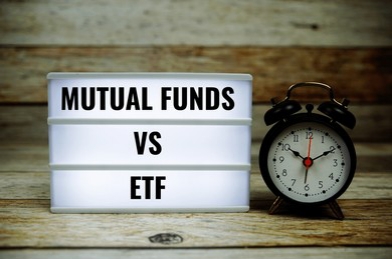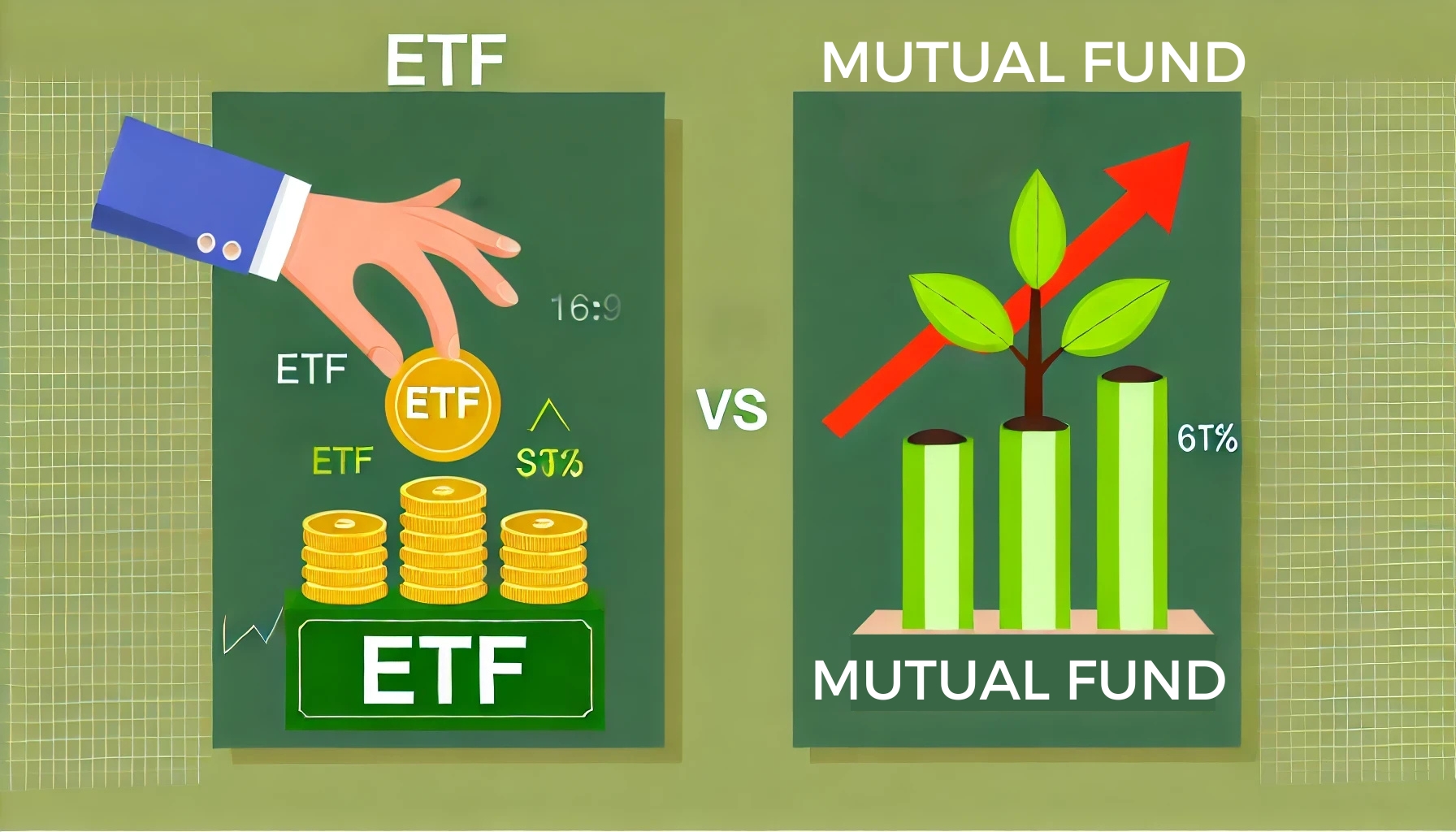
ETF vs Mutual Fund: Which is Better for You in 2025? 🧐💰
Investing can be overwhelming, especially with so many options available. Two of the most popular choices for beginner and seasoned investors alike are ETFs (Exchange-Traded Funds) and Mutual Funds. But which one is right for you? Let’s break down the differences, pros, and cons to help you make an informed decision in 2025! 🚀
What is an ETF? 📈
An ETF or Exchange-Traded Fund is a type of investment fund that’s traded on stock exchanges, just like individual stocks. It usually holds a collection of assets like stocks, bonds, or commodities and is designed to track an index (like the S&P 500).

✅ Key Features of ETFs:
- Traded on stock exchanges throughout the day
- Lower expense ratios compared to mutual funds
- Offers tax efficiency due to in-kind redemptions
- Can be bought and sold like stocks with a brokerage account
What is a Mutual Fund? 🏦
A Mutual Fund is a pooled investment vehicle managed by a professional fund manager. It collects money from various investors and invests in a diversified portfolio of stocks, bonds, or other securities.
✅ Key Features of Mutual Funds:
- Priced once per day (at NAV – Net Asset Value)
- Actively or passively managed
- Typically comes with higher fees and expense ratios
- Ideal for long-term investors who want professional management
ETF vs Mutual Fund: Head-to-Head Comparison ⚔️
Here’s a detailed comparison of ETFs and Mutual Funds across various factors:
Pros and Cons of ETFs ✅❌
✅ Pros:
- Low cost
- High liquidity
- Tax-efficient
- Ideal for short-term trading or long-term holding
❌ Cons:
- Brokerage fees (though many platforms now offer zero-commission trading)
- Might be overwhelming for beginners due to price volatility
Pros and Cons of Mutual Funds ✅❌
✅ Pros:
- Professional management
- Great for long-term goals like retirement
- Easy to automate investments
❌ Cons:
- Higher fees and expense ratios
- Less control and flexibility
- Not tax-efficient
Which is Better for Beginners? 🤓
For beginner investors, ETFs are usually the better option in 2025 due to:
- Lower fees
- No minimum investment
- Greater transparency
Mutual funds may still appeal to those who prefer a “set it and forget it” approach with professional guidance, especially for retirement accounts like IRAs or 401(k)s.
Use Cases: When to Choose What? ⚖️
Choose ETFs If You:
- Want lower costs
- Prefer real-time trading
- Are comfortable managing your own investments
- Need more tax-efficient options
Choose Mutual Funds If You:
- Want a professional to manage your portfolio
- Are investing through an employer-sponsored plan
- Don’t mind paying higher fees for convenience
- Are focused on long-term goals
Top ETFs to Watch in 2025 🔍
- VOO (Vanguard S&P 500 ETF) – Low-cost index tracking the S&P 500
- QQQ (Invesco Nasdaq 100 ETF) – Focuses on tech-heavy Nasdaq
- VTI (Vanguard Total Stock Market ETF) – Offers broad market exposure
- ARKK (ARK Innovation ETF) – Actively managed ETF focusing on disruptive tech
Top Mutual Funds for 2025 🔥
- Vanguard 500 Index Fund (VFIAX) – Passive fund tracking S&P 500
- Fidelity Contrafund (FCNTX) – Actively managed large-cap growth fund
- T. Rowe Price Blue Chip Growth Fund (TRBCX) – Strong track record in blue-chip stocks
- American Funds Growth Fund of America (AGTHX) – Long-term performance, solid reputation
Final Verdict: ETF vs Mutual Fund in 2025 🏁
There’s no one-size-fits-all answer. It all depends on your investment goals, risk tolerance, and preference for control vs. convenience.
- ETFs are best for cost-conscious, self-directed investors who want flexibility and lower fees.
- Mutual funds are ideal for hands-off investors who want professional management and don’t mind paying for it.
Want the best of both worlds? Consider a mix of ETFs for core holdings and mutual funds for long-term goals like retirement.
Conclusion: Make the Right Choice Today! 🎯
Whether you go for ETFs, mutual funds, or both, the most important step is to start investing. Your money won’t grow sitting in a savings account. Make smart choices today to build wealth tomorrow.
Ready to invest smartly in 2025? Start with what wealth wired.






